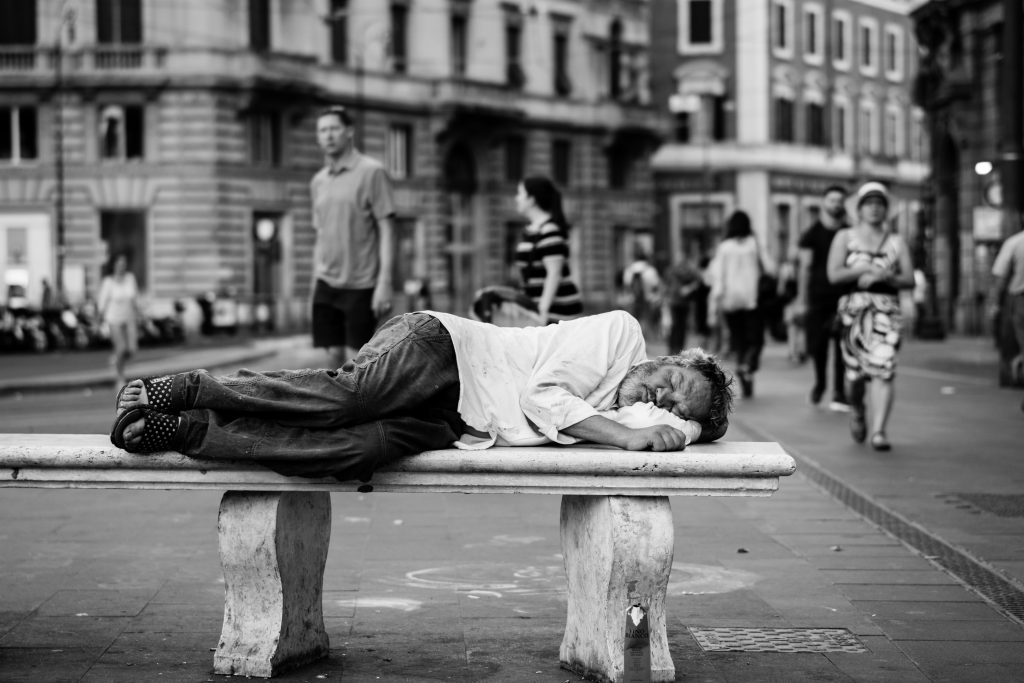
Inequality: The Pandemic of the Gluttonous
Article by Isabel Bates
Photo by John Moeses Bauan on Unsplash
It would be safe to suggest that when you hear the word ‘pandemic’ you think of COVID-19. In many aspects, certain countries struggled more than others with controlling and preventing the spread of disease but whilst some governments reacted quicker than others overall, measures to stop the spread were put in place as soon as they realised what a danger this disease was to the world. However, the most harmful and damaging pandemics are the ones that people try to ignore. The pandemics that go untreated are those that spread more and more until patterns become irreversible and the trajectory of lives is changed forever. Thus, inequality is the largest pandemic of all. It is seen all over the globe, infiltrating everyone’s lives, for better or for worse. Although some have done more than others, governments on the whole try to stray away from doing much to manage it, in the hopes that the most rich and powerful can stay the most rich and powerful.
In November 1979, Margaret Thatcher confidently stated that “Pennies don’t fall from heaven. They have to be earned here on earth”. The woman who argued this is the same woman who, as it seems, didn’t pay for her £6 million home in London. As Dorling (2014) presented, those in the top 1% of the population take and take, become richer and richer and contribute to inequality more and more. The social gradient grows steeper as the years go on because of this. To represent the amount of inequality that the rich hold, it takes a household earning of £160,000 per year to be a member of the top 1% of the UK, whereas to be a member of the top 10% it takes £50,000 per year. This clearly and truly exemplifies the extent of the power and wealth that the top 1% hold, and this extreme is creating even higher levels of inequality. There is more inequality to be seen in the top 10% of the population (including the top 1%) than there is to be seen in the bottom 99% of the population.
As Dorling (2014)implied, some people would argue that the top 1% deserve their spot there, not only because these people have “worked harder”, but also because they pay the most tax. According to the Institute of Fiscal Studies, in 2018-19, the top 1% earned 15% of the UK’s total income and paid 34% of the total tax for the UK. The data presented here supports this argument, however, what cannot be seen here is that it is the poor paying the most tax in comparison to their income per year, meaning they are left with less of a disposable income at the end. As presented in the Office for National Statistics, disposable income inequality is at 35.7% as of the FYE 2022, compared with 34.4% as of the FYE 2021. So, while the rich may pay more tax, the poor suffer from paying it the most.
According to Dicken (2014), it is the ‘top end’ of the world’s developed countries’ income distribution that has grown the fastest. For example, the average income of the top 1% increased by 60%, while the bottom 90% grew by 18% from 1997- 2007. This discrepancy clearly demonstrates that wealth is highly concentrated between certain people and places, and this is most accurately demonstrated in the world’s ‘global cities’, where there is huge inequality, such as in London and New York. Furthermore, as stated by the IFS, the top 1% is largely made up of middle-aged males based in London who are out of touch with the rest of society.
To conclude, there will always be a top 1% of a country’s earners, but there does not have to be as much inequality as there is in developed countries like the UK and the USA. For example, in countries such as Switzerland and the Netherlands, the top 1% cost the country only 2-3% of their income. In contrast, the top 1% of the population has never been more expensive for Britain, taking 15% of the country’s income per year, and up to 20% in the USA. It can be gathered from this information that inequality truly is a pandemic, caused by those who are the most ignorant of others’ struggles, damaging everybody other than themselves.

0 Comments